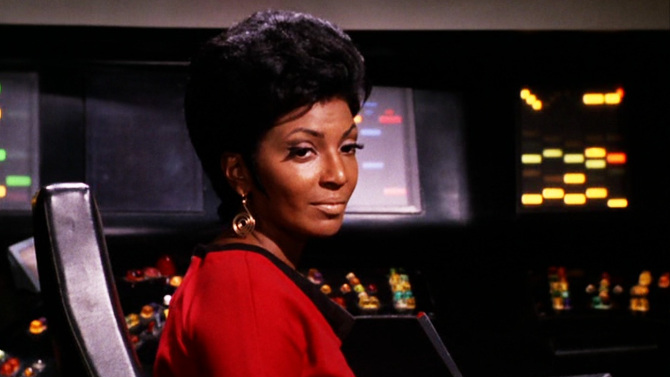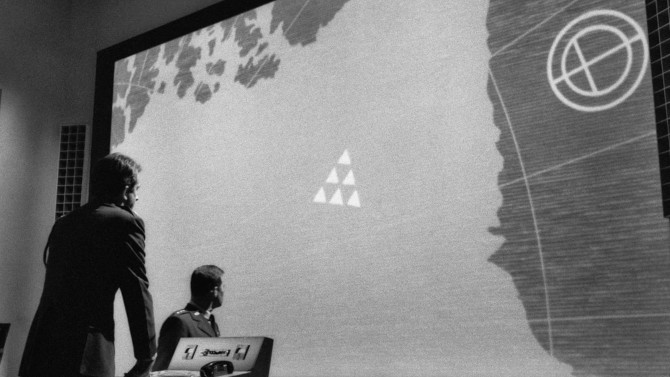
Safety First
Like a severe and utterly serious version of Stanley Kubrick’s 1964 satirical dark comedy Dr. Strangelove or: How I Learned to Stop Worrying and Love the Bomb, you would think that Fail Safe would have been the original release in theatres that was then later spoofed, yet that is not the case. Released approximately six months later in the same year, as you might imagine, it led to very poor returns at the box office – dare I say it (as the film deals with this subject matter)... it was a bomb! Despite that, over time, it has become a bonafide classic. Based upon Eugene Burdick’s 1962 novel of the same name and directed by Sidney Lumet (Dog Day Afternoon), he introduces us to our main players by way of little vignettes.
-
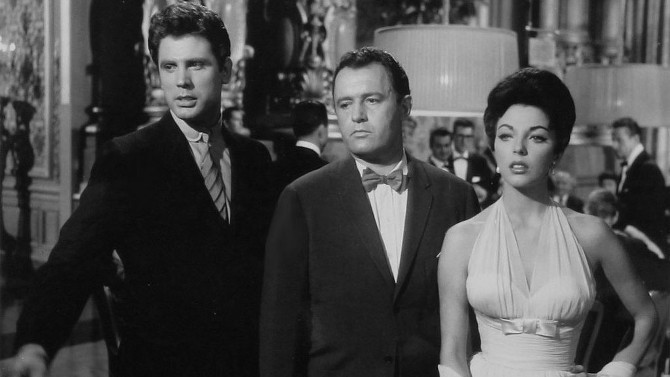
Thieves in the Night
Seven ThievesSeptember 1, 2017Arriving at theatres a few months before the iconic 1960 Lewis Milestone film Ocean’s Eleven, Henry Hathaway’s Seven Thieves is its lesser known forerunner, yet despite being in its long casting shadow, it is a whole lot of fun. Set in Monte Carlo, disgraced professor and scientist Theo Wilkins (Edward G. Robinson) is the mastermind of a daring plot to rob a posh, extravagant casino in the picturesque Principality of Monaco. Uniting a talented group of shady individuals, the aging ringleader has called on longtime American acquaintance Paul Mason (Rod Steiger), a smart man who has worked with Wilkins before, hoping that he will be his right-hand man as well as the iron fist that will keep everyone in line.
-
Star Pick with Nichelle Nichols
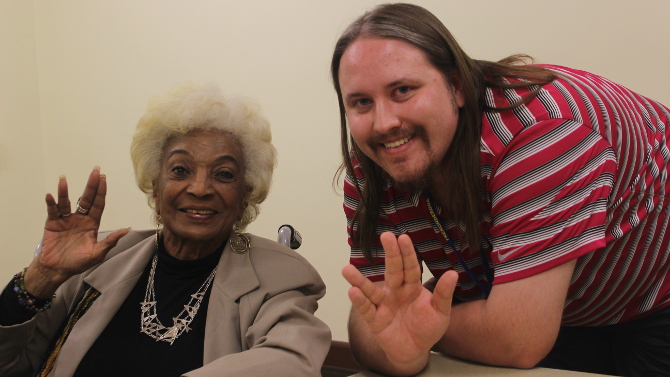 Nichelle, Ma Belle. . .Star TrekAugust 29, 2017
Nichelle, Ma Belle. . .Star TrekAugust 29, 2017It is rare to find a character so iconic that by simply uttering their last name, everyone is on point. One such case is Uhura. Brought to vivid life on the original Star Trek series (1966-1969) by the great Nichelle Nichols who developed an engaging, multi-faceted and wholly inspiring persona at a time when African American women were portrayed as maids or in other lowly servile positions on television. The fourth most powerful person on the USS Enterprise, Nichols was a part of a multicultural cast that was more than unusual for the era. The crew was comprised of African American, Asian American, Scottish, Russian (during The Cold War), half-alien, and white – symbolic that in the future, we, as human beings, would be able to come together to achieve something special, or as it was so aptly put: “Space: the final frontier. These are the voyages of the Starship, Enterprise. Its five year mission: to explore strange new worlds; to seek out new life and new civilizations; to boldly go where no man has gone before”.
-
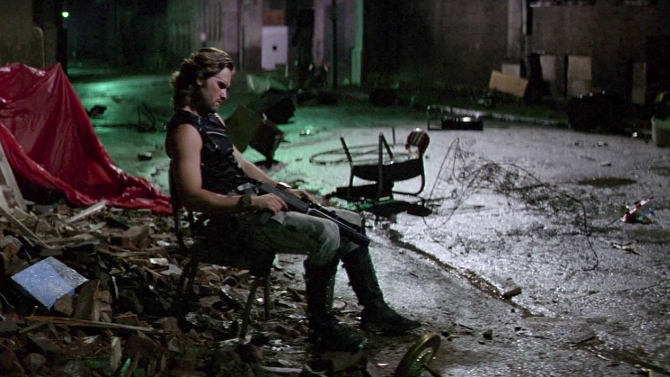
There’s No Escaping This One
Escape from New YorkAugust 20, 2017Uttered in the opening narration, the oft quoted line “the rules are simple: once you go in, you don’t come out” is in many ways symbolic of how John Carpenter’s 1981 motion picture Escape From New York has ensnared a passionate cult following. Set in a dystopic America in 1997, the crime rate has risen by four hundred percent, and the island of Manhattan has become an Alcatraz of sorts, only infinitely more secure and bizarrely intense. Surrounded by a behemoth of a wall and patrolled by the United States Police Force, all bridges leading out of the city are mined, making for a doom laden locale that has a semblance of inescapability. Carpenter carefully transports us into this eerie world at the movie’s opening, providing us with an eagle-eyed perspective of Manhattan and its near impenetrable defences.
-
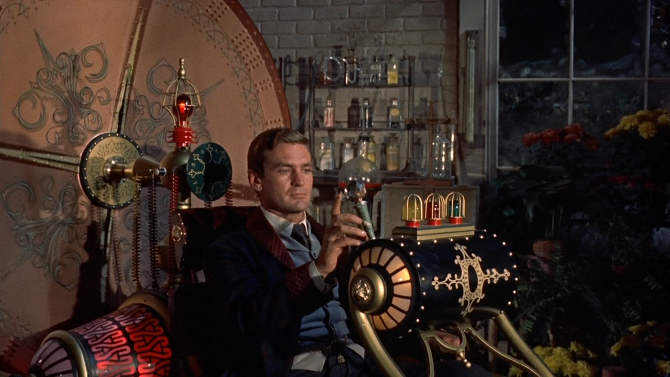
Time Traveller
The Time MachineAugust 13, 2017One of my favourite films as a young boy – wholly capturing my imagination, was the 1960 George Pal directed sci-fi adventure The Time Machine, based on the 1895 novel of the same name by iconic author H.G. Wells. It is this movie that has possibly fuelled my intrigue with clocks, pocket watches and other time oriented things (motion pictures definitely fit within this grouping). Set at the turn of the twentieth century, specifically on two days, December 31st, 1899/ January 5th, 1900, H. George Wells (Rod Taylor) is an inventor and time enthusiast, a peculiar fellow who has changed quite a bit in a short amount of time – at least according to his friends. Disenchanted by the warmongering of the British government (the Boer War) and the ways in which technology has been used to improve the efficiency of killing, the inventor looks to the future for hope in humanity.
-
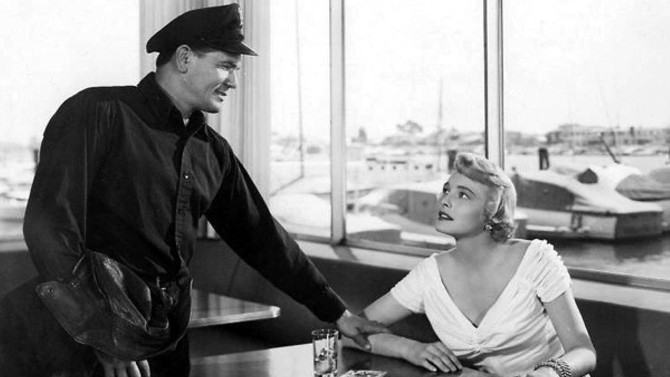
Point of No Return
The Breaking PointAugust 11, 2017An atmospheric noir that takes place on both land and sea, Michael Curtiz’s 1950 crime drama The Breaking Point, the second adaptation of Ernest Hemingway’s “To Have and Have Not” (the original, the 1944 version, utilized the novel’s title and paired Humphrey Bogart and Lauren Bacall for the first time), is a gripping tale that never lets you go. A touch less cynical but just as fateful as your prototypical film noir, the narrative follows former marine Harry Morgan (John Garfield), a genuine yet gruff fishing boat captain who has never caught the break he has so hoped for. Working with his loyal-to-a-fault African American first mate, Wesley Park (Juano Hernandez), the pair have been together for twelve years, always just making ends meet.
-
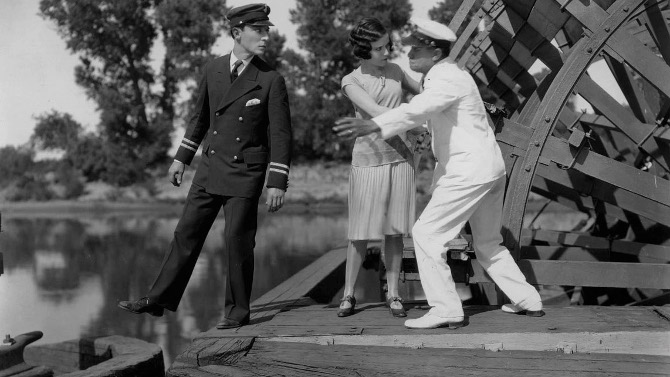
Riverboat Fantasy
Steamboat Bill, Jr.August 7, 2017An inside joke for fans of Buster Keaton, they surely know that he often wears a pork pie hat in his films. Well, while watching 1928's Steamboat Bill, Jr., there is a scene where his uncle takes him to buy a new hat – to replace the effeminate French beret that currently adorns his little head. A revolving number are tried on by the young man, with the closest to his original being wholeheartedly rejected. Though he does eventually purchase a much larger version of a pork pie hat, it flies off of his head and into the flowing river, not to be recovered. This, in many ways, is symbolic of the changing era the talented silent comedian found himself in. After the box office debacle that was The General (now considered one of his greatest features), Keaton was no longer blessed with carte blanche when making his movies – the studio keeping a keen eye on spending and limiting his overall control.

